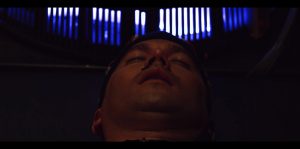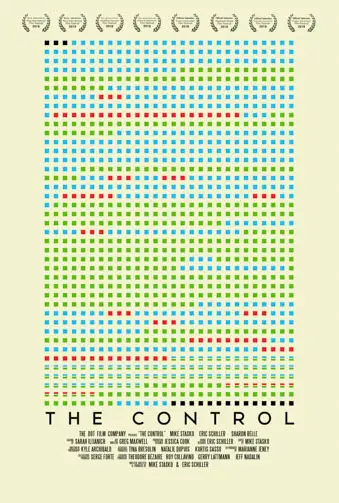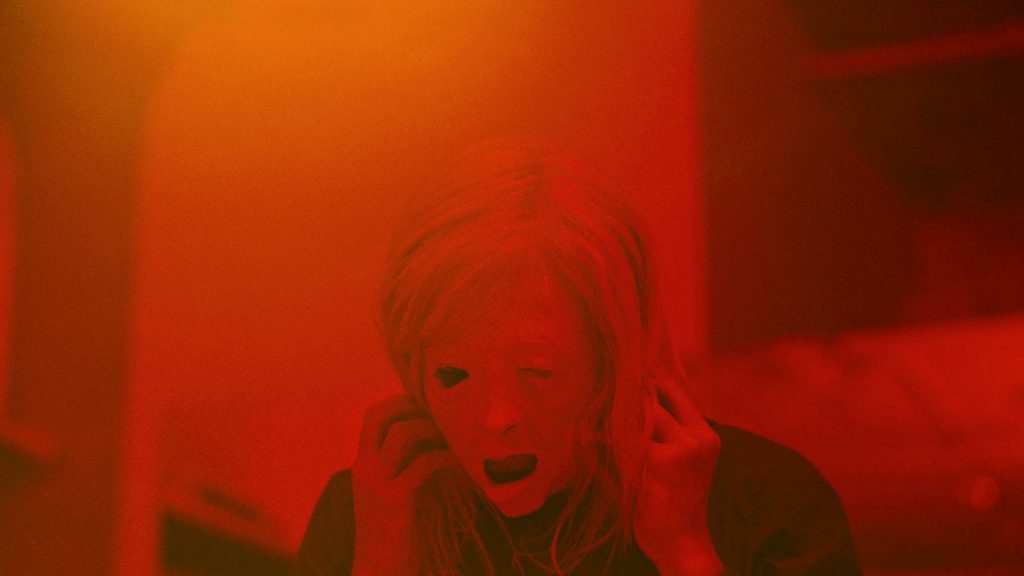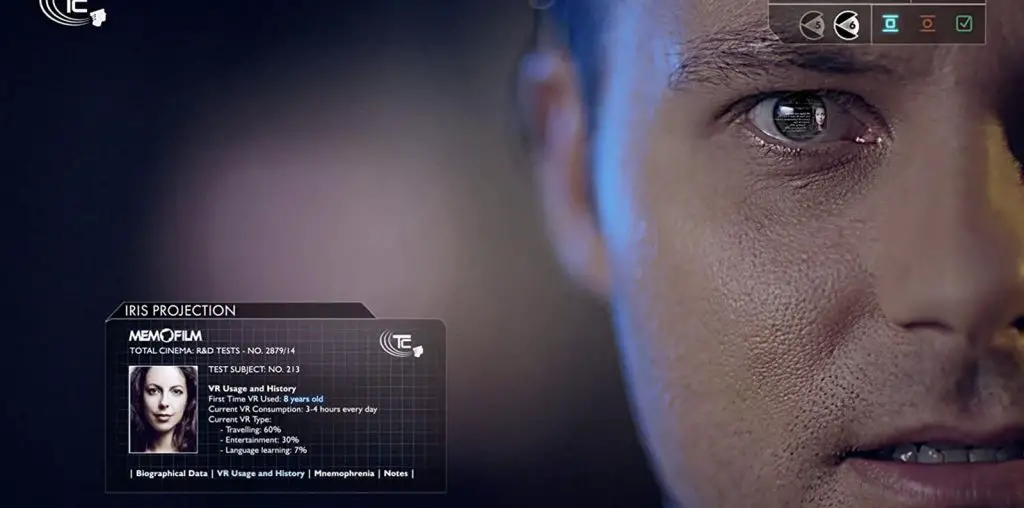
The indie science fiction thriller The Control explores what might happen to a human mind during extended space travel in suspended animation sleep. In the scenario painted by this film, the deep coma-like slumber induced during months or years spent in space doesn’t suppress the mental functions of astronauts enough to prevent dreaming. So their minds must be kept occupied or suffer terrible mental damage from inactivity and lack of input while essentially locked-in until awakened at the end of the trip. The answer suggested by co-writers/directors Mike Stasko and Eric Schiller is to immerse the sleeping mind in a fully interactive dream world, managed by elaborate game software, and enhanced by drugs meant to encourage acceptance of the world as real.
Fuller Corporation CEO Ray Fuller (Jack Sennett) has set out to solve this problem, ostensibly to facilitate long space journeys, but also, perhaps, to enhance the quality of his life, as he is very ill. He hires brilliant game designer Mike (Mike Stasko) and neurochemist Eric (Eric Schiller) to create this virtual world inside the mind. The project begins to go off the rails when the test subjects experience disjointed realities and non-linear fragmented experiences that induce psychotic breaks. When Mike and Eric clash over the ethics of how to address these failures, it becomes clear that even the base reality they share is in question. What is not clear, ever, is who really does have The Control.

“The project begins to go off the rails when the test subjects experience disjointed realities…”
The leads in the film are played by the writers/directors Schiller and Stasko, and their acting is perfectly adequate. The production is high quality, but trying to make coherent sense out of the confusing non-linear story makes this an ambitious movie beyond the filmmakers’ skill level, as they have bitten off more than they can chew. The promotional material for the film calls the style postmodern, which in this case means out-of-sequence. There are many threads to follow that aren’t resolved, and many characters who appear only briefly. A minor but annoying nitpick is that some of the scenes are so poorly lit it’s nearly impossible to see what is going on.
The Control demands your full attention, or you’ll miss something. In fact, you have already missed something at the beginning because the story is not told in a straightforward fashion. The viewer must assemble the correct sequence after watching the whole movie. This requires a greater-than-normal investment in the film, and you won’t know until you’re done whether it was worth it. With the cliffhanger style of binge tv shows offered on streaming services, viewers might be a bit more cautious about going into a movie that makes them work so hard for the value.

"…many threads to follow that aren't resolved..."


